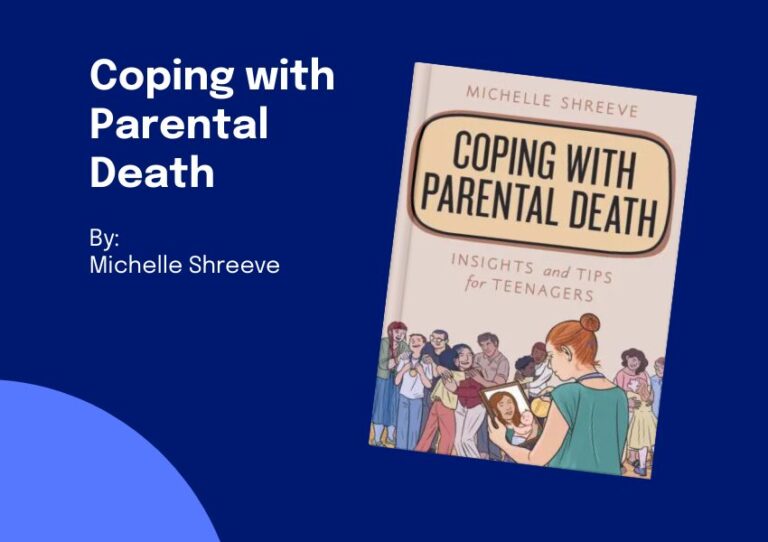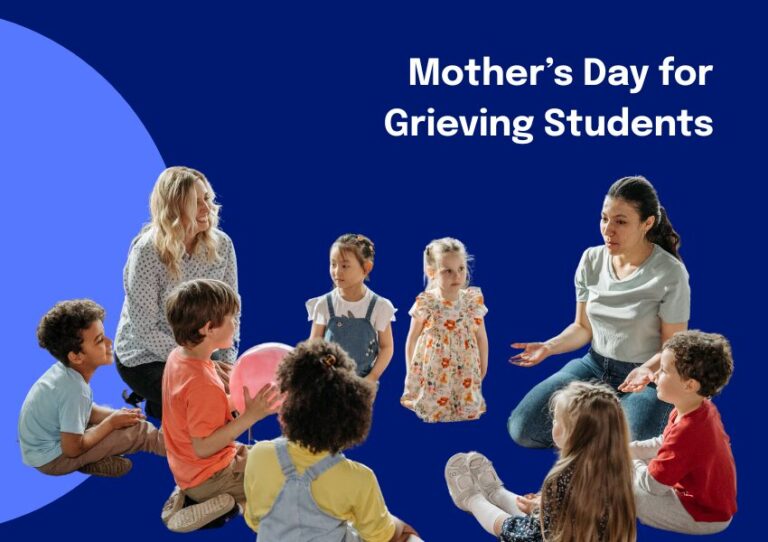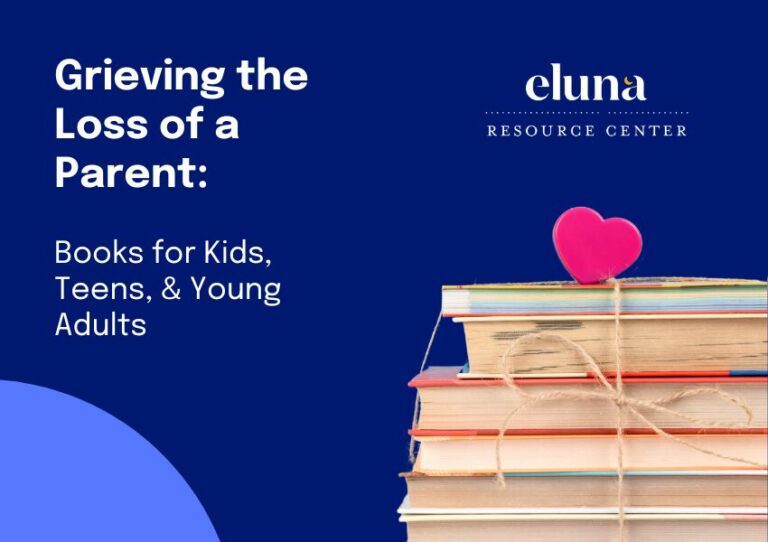Mother’s Day Grief
 Mother’s Day can be a reminder of the absence we feel from the loss of a mother, grandmother, stepmother, foster mother, first mother, biological mother, godmother, aunt, friend, or mother figure. This is especially true for children and families impacted by grief or addiction. For many of us, it’s a reminder that another year has passed and we may feel a deepened sense of isolation. It can seem like everyone else is celebrating the traditions that we used to share with that person.
Mother’s Day can be a reminder of the absence we feel from the loss of a mother, grandmother, stepmother, foster mother, first mother, biological mother, godmother, aunt, friend, or mother figure. This is especially true for children and families impacted by grief or addiction. For many of us, it’s a reminder that another year has passed and we may feel a deepened sense of isolation. It can seem like everyone else is celebrating the traditions that we used to share with that person.
For everyone grieving their mother figure, it’s an important day to acknowledge how it feels. So, in order to help, we have provided some ideas and strategies to approach Mother’s Day whether it’s taking the day to remember and honor your mother or taking the day off from everything. Also consider purchasing a customized grief care package that can be sent directly to a loved one with therapeutic and comfort items appropriate for their age and circumstance.
Whatever you decide to do on this day, please remember that you are not alone. Reach out to Eluna’s Resource Center for a personalized set of local resources to support you and your loved ones during this time.
Connect:
- The Dinner Party is a worldwide community of people who have experienced the loss of a loved one and seek to connect through their buddy system, virtual tables, or events.
- Other’s Day is an Instagram community for anybody who isn’t able to join in on traditional parent celebration days.
- Camp Erin is the largest national bereavement program for youth grieving the death of a significant person in their lives. Children and teens ages 6-17 attend a transformational weekend camp that combines traditional, fun camp activities with grief education and emotional support, free of charge for all families.
Write/Draw:
- Mother’s day can be extra hard on teenagers. Consider writing a blog post and sharing it on a site like Teenage Grief Sucks.
- I Love That You Are My Mom Because books are a good way to memorialize your favorite things about your mother figure.
- Art With Heart is a Seattle-based non-profit that creates and distribute therapeutic books that combine art and writing to help kids cope with overwhelming feelings even in the midst of a crisis. We recommend DRAW IT OUT for the elementary schooler and INK ABOUT IT for the middle school aged child.
- Body Map: Where does grief show up in your body? Just like you would follow a treasure map to find a treasure, you can make a map of where you feel your grief in your body. This map helps you and other people see where you are hurting and give extra love and attention to these areas.
- Write an email, send a card or call up one of your mother’s friends or another family member who might be missing her as much as you do. Talking about the mother they miss and saying their name is often sited as one of the most helpful acts to support grievers.
- Create a collage or just grab your mother’s favorite color crayon or maker, take a deep breath and start drawing or writing.
Watch:
- Amazing Grace is a web series inspired by the personal story of Grace who was 10 years old when her Father died suddenly. The series is about resilience and celebrating the love between a parent and daughter that is never lost, not even through death.
- In this Sesame Street video, Gordon and Abbi explore what it means to have big feelings. Another Sesame Street video shows Elmo’s dad talking with Jesse about her father who died and helps to process hard feelings.
- The first film in the Harry Potter series introduces Harry and his friends as they excitedly take up their places at Hogwarts. We also learn that Harry is grieving the loss of his parents. The Harry Potter books and films all have grief and resiliency at their core.
- Finding Nemo begins with the death of Nemo’s mother, leaving Nemo and his father alone to navigate the many currents of grief. A common theme in the film is separation, especially the fear and worry that can come after the death of a loved one. It teaches the importance of trust in the grieving process.
Read:
- We are big fans of Hope Edleman because she brings her accessible tone and innovation to the conversation around grief. In Motherless Daughters she talks to real women who are grieving their mothers. In her 2020 book The Aftergrief, she works to redefine commonly held ideas about the process and stages of grief.
- Another book that addresses modern grief is It’s OK that you’re Not OK.
- Garden of Hope tells the story of a little girl struggling to cope with the loss of her mom. After her dad explains how planting seeds and helping them grow allowed her mom to overcome her worries, Maya revives a neglected garden to create a place of hope and happy memories.
- More grief book recommendations can be found here.
Tribute:
- Build a Memory Jar: We have been sharing this activity for many years and have witnessed the supportive power of creating a special place for memories. We recommend jars like this filled with a little string of lights or a little electric candle placed in a special place with a pad of paper so that anyone can contribute to the jar and anyone can visit the jar when they are moved to visit their loved one.
- Light a Virtual Candle: Our friends at Experience Camps have created a page where you can light a virtual candle in tribute to anyone you are grieving. This is a nice idea to honor your mother with her name and a flickering candle. It’s a powerful way to find communal mourning.
- Cook a Special Recipe: Did your mother have a signature dish or favorite meal?
- Legacy Book: If you have a legacy book, revisit the things that your mother wanted you to know about her life. If you don’t have this kind of book, try looking through old family photo albums or make a list of questions you would want to know about her. Reach out to someone in her life who may want to explore these questions with you.
- Movies/Song: Watch your mother’s favorite movie or listen to her favorite song. Watch her favorite sport.
Self Care:
- Go Outside: Take a walk, hike, or a step outside. Taking in fresh air and the sounds around you can help to settle the body and mind.
- Digital Detox: Social media can lead to a swarm of posts that may be difficult to see on Mother’s Day. Place your phone in a different room if needed or with a friend as you attend to your personal care.
- Provide Time & Space For All Feelings: Give yourself and your child permission to feel, talk, cry, laugh, and breath. Try to not resist or judge the wave of varying emotions that you may experience throughout the day.
- Talk to a Trusted Friend: Reach out a friend or family member about your mother and feelings. Sometimes it helps to set this up in advance so that you know that you have someone to go to.
- Be Kind To Yourself: Everyone’s grief looks and feels different. Tune into what your mind and body needs to feel safe and grounded during this time. Taking care of basic needs including sleep and nutrition is a good place to start.


